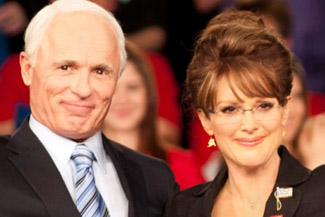|
|
All About Oscar: The Case for TV MoviesGame Change Proves That It's The Oscars That Need to ChangeBy Tom HousemanMarch 21, 2012
I understand why films have to be shown in the United States to be eligible for the Oscars. There are so many films released internationally that Academy voters would have no access to that it does not make any sense that have those films in the competition. But that rule is in place to ensure that voters are able to see any movie that could be eligible. Is it safe to assume that most members of the Academy have HBO, or at least have a friend who has HBO? I also do not think that TV series or miniseries should be eligible for Best Picture. Those are very different formats that require very different storytelling structures than movies, and should be judged with different standards. I am sure that next year Julianne Moore and Game Change will clean up at the Emmys and the Golden Globes. And she will never get to compete with Keira Knightley in Anna Karenina or Carey Mulligan in The Great Gatsby or Viola Davis in Won't Back Down or whoever ends up being nominated for Best Actress. And that is a shame, because I can't imagine any conversation about the best performances of the year that does not include Moore. And when I fill out my ballot for the Calvin's next year it is extremely likely that Game Change, Julianne Moore, and Ed Harris will show up. Hopefully my fellow BOP writers will join me and not make the mistake that the Academy does every year. While I think that the world would be better if everybody ignored Sarah Palin, the opposite is true of Game Change.
|

|
|
|

|
Thursday, October 31, 2024
© 2024 Box Office Prophets, a division of One Of Us, Inc.


